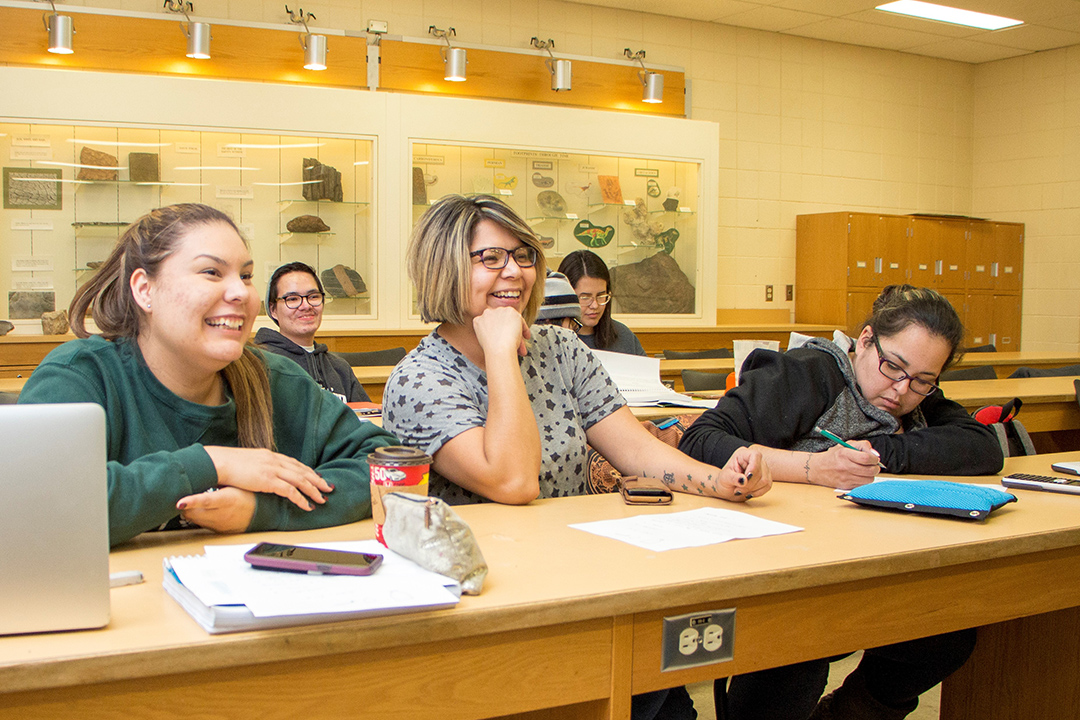
Aboriginal Student Achievement Program honoured with Provost’s Prize
When first-year University of Saskatchewan student Janice Osecap decided to pursue post-secondary education, she faced a number of “stresses”—including getting into the right classes.
By Shannon BoklaschukThen Osecap found the Aboriginal Student Achievement Program (ASAP) in the College of Arts & Science, which offered support and encouragement throughout the academic year. Osecap, who is now an aspiring education student, said ASAP has many benefits—including tutoring sessions to help familiarize students with writing academic papers—noting one-on-one opportunities with her instructors helped to strengthen her “weak spots."
“The feeling of community within the university’s huge environment really helped me feel like I belonged,” she said. “In your first year it so easy to slip between the cracks and lose your motivation. I had access to information I would not have even known existed, if it weren’t for the guidance of the peer mentors.
“Educationally, I was able to find more success in smaller classrooms with more instruction, rather than large classrooms with lectures. The close interaction with the professors, as well as classmates, is really what helped me understand the depth of the lectures.”
ASAP aims to provide a dynamic and supportive first-year experience to Indigenous students in the College of Arts & Science, and its unique approach was honoured on April 27 with the Provost’s Prize for Innovative Practice in Collaborative Teaching and Learning. The Provost’s Teaching Awards at the U of S recognize outstanding teaching and classroom innovations by faculty, sessional lecturers or staff across a variety of categories.
The ASAP team includes Kristina Bidwell, Dirk de Boer, Sandy Bonny, Milo Cameron, Bev Digout, Sarah Gorham, Kayla Goshulak, Jessica Knoop, Shanelle Labach, Jenn Morgan, Lori Pollock and Paul Thompson.
Participants in ASAP join learning communities of students with common interests who attend classes together throughout their first year. Elders and peer mentors—upper-year Indigenous students—offer regular motivation and guidance. Advisors work closely with students to establish academic and financial plans.
Cameron first became involved with ASAP as a peer mentor and now works as a student advisor. While being a peer mentor was a lot of work, the experience was also “vastly rewarding,” he said.
“The reason why I wanted to be a peer mentor is because I knew what it felt like to be new at the University of Saskatchewan. I knew all the confusion that comes with being in a new environment and feeling like a fish out of water. I dealt with that and made it through,” he said.
“Being a peer mentor was an opportunity to help out students and assist them in navigating those tricky waters. I wanted to utilize my experience to make someone else’s experience easier.”
Read more about ASAP at the College of Arts & Science news site.

